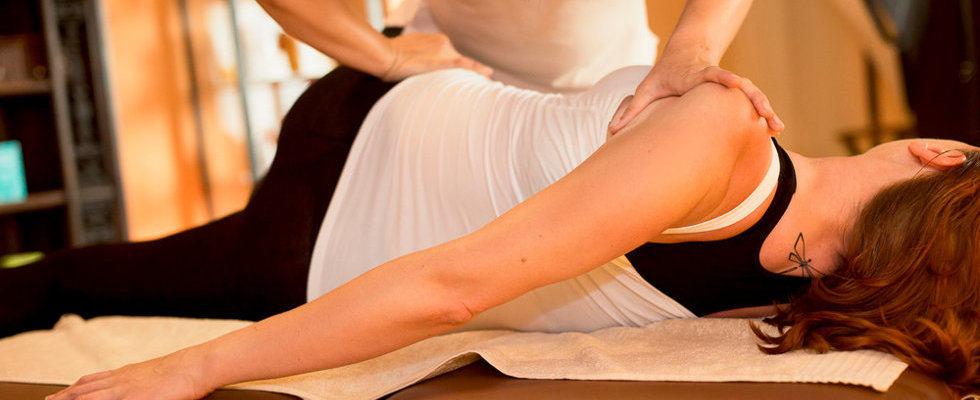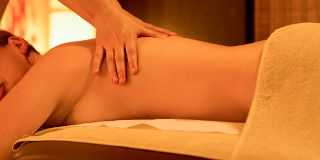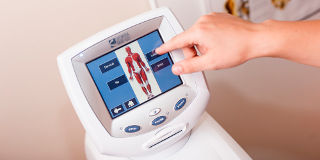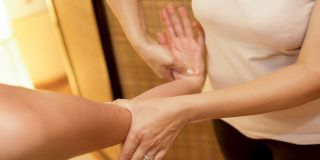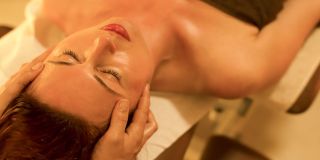Stomatognathic rehabilitation of the temporomandibular joint (TMJ)
"Epidemiological studies show that functional disorders of the stomatognathic system are the third most common dental disease of a social nature. It's a civilization disease with the biggest increase in the number of patients in recent years and it affects all age groups [6, 8]. Etiopathogenic factors of the dysfunction of the stomatognathic system can be general, local or mixed - complex. General causes include, among others: stress, endocrine system dysfunction, incorrect posture."
Stomatognathic rehabilitation deals with the treatment of dysfunction in the temporo-mandibular joint, neck and head.
The stomatognathic system includes the functional group of tissues and organs in the oral cavity and the craniofacial region, the base of the skull and neck, it's responsible for chewing, speech, singing and articulation of sounds, breathing and expression of emotions.
The most common cause of dysfunction in the temporomandibular joints is chronic stress (for what is chronic stress and its consequences, you can read more in the excellent book by Robert Sapolski "Why zebras don't get ulcers"), inclination to 'chew' the personal events and difficulty to express anger, which both cause a strong tension in the chewing muscles, clenching and gnashing teeth, leading to their damage (bruxism). Disruption of muscle tension within the temporomandibular joint (articulatio temporomandibularis) or TMJ, neck muscles and shoulder girdle may also cause the following symptoms: headaches, tinnitus, spastic tension of mandible and neck muscles, involuntary head movements and degenerative changes within the temporomandibular joint. Therefore, in the treatment of stomatognathic system, the techniques of regulating the autonomic nervous system (sympathetic: 'fight or flight' response and parasympathetic, active during relaxation), as well as methods of relaxation and techniques of restoring proper tissue tropism and muscle nutrition are of fundamental importance.
Another cause of the temporomandibular joint problems may be postural dysfunction or sudden injury.
Rehabilitation of the temporomandibular joint is preceded by a thorough clinical examination of the joint. The examination of the joint lasts for 1 hour and includes Langlade's postural analysis, Manual Functional Analysis of the Dynamics of the Masticatory System and Festa's examination of the palpation of head and neck muscles. This examination leads to a diagnosis that determines the use of appropriate treatment methods. If degenerative changes in the temporomandibular joint and abnormal bite is the case, joint treatment should include the cooperation of a physiotherapist, psychologist, orthodontist and temporomandibular joint surgeon.
Dental/stomatognathic rehabilitation is a cure for:
- Bruxism (grinding teeth, increased muscle tension) and other parafunctions
- Clicks and the feeling of the temporomandibular joint 'skipping'
- Pain, dizziness and cervical pain in the spine
- Pain in the region of the temporomandibular joints
- Some of the types of tinnitus
- Tension headache
- Conditions after surgery within the chewing organ, head, neck, chest.
- The deviation of the TMJ, restricted mouth movement or its hypermobility
- Post-traumatic changes of the jaw (frequent, when training contact sports: Kick-boxing, Thai boxing, Kyokushin-karate, etc.)
We especially recommend the manual therapy and therapeutic massage of the stomatognathic system for actors, singers, teachers and similar professions.
In dental rehabilitation we use: manual therapy, cranio-sacral therapy, therapeutic massage,osteopathic techniques, temporomandibular joints and neck exercises, proprioceptions, postural rehabilitation techniques. One of the methods, especially recommended as part of the daily therapy for people with issues of the masticatory system is Jacobson's autogenous training: https://www.youtube.com/watch?v=GnyCpEh39h

